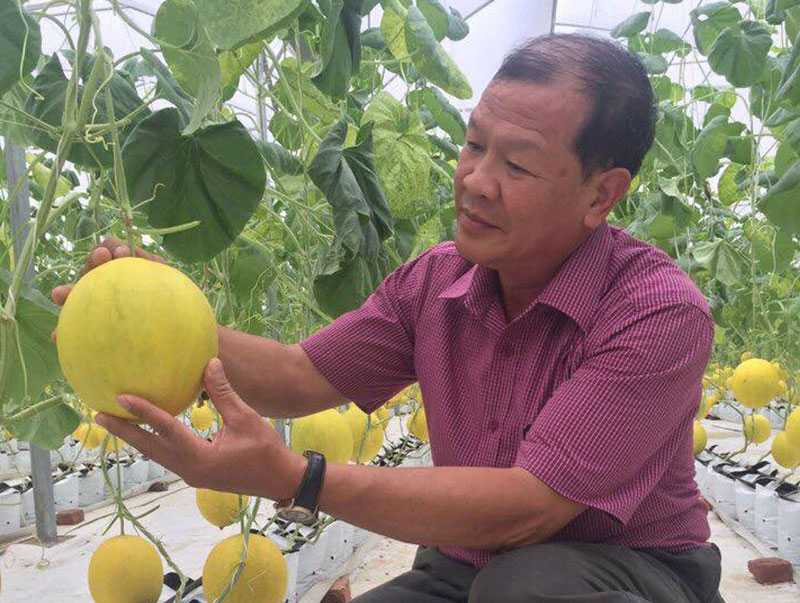



Photo:
Pham Tien Sinh takes care of "Kim hoang hau” melons which are grown under the
VietGAP standards, the outcome of the elderly farmer’s first year of startup.
In 2016, he decided to use all the money he had
to pursue his dream of hi-tech agriculture, which was a big risk as high
technology is very expensive. The cost of technical infrastructure, greenhouse
system and net house amounted to billions of VND. In return, the investment
created a breakthrough in production, the value of his products thereby
increased significantly. Sinh became the first in the locality to conquer this
ground-breaking application.
Since early 2017, the province’s market
has seen the appearance of muskmelons, "Kim hoang hau” melons and cucumbers
branded Hoa Binh GAP every two and a half months. These products are grown in
high technology greenhouse with automatic watering equipment of Pham Tien Sinh.
The products are welcomed in the market both in and outside the province. They
are frequently in shortage conditions.
The elderly farmer said that it
took him a lot of time to find the place with right conditions and then about
one more year to build infrastructure meeting technological standards. Finally,
his new greenhouse system was put into use at Village 2, Thanh Ha Town (Lac
Thuy). Sinh dedicates all his attention, time and capital, including borrowed
money, to the project. Every day, from dawn to dusk, he travels over more than
20 km by motorcycle from home to the farm and stays there until it is dark.
The greenhouse system and
irrigation equipment of the farmer meet the standard of Israel. The cultivation
in greenhouse has an outstanding advantage of avoiding rain, sunshine and the
invasion of insects while allowing the proactive provision of nutrition for plants.
Thanks to the system, he can produce clean, safe and non-pesticide products to
the VietGAP standards. His company has a technical staff, while creating jobs
for 10 local workers.
After one year, the farm produced four crops of
fruit, with total turnover of 1.4 billion VND. Sinh calculates that he can
recover the investment after two years, and he will enjoy profit for the next
years. In addition, he plans to expand the greenhouse area from 5,000 square
metres to 10,000 square metres in 2018. The remaining 4 hectares of his land
will be used to grow organic vegetables to meet increasing demand of the
market.